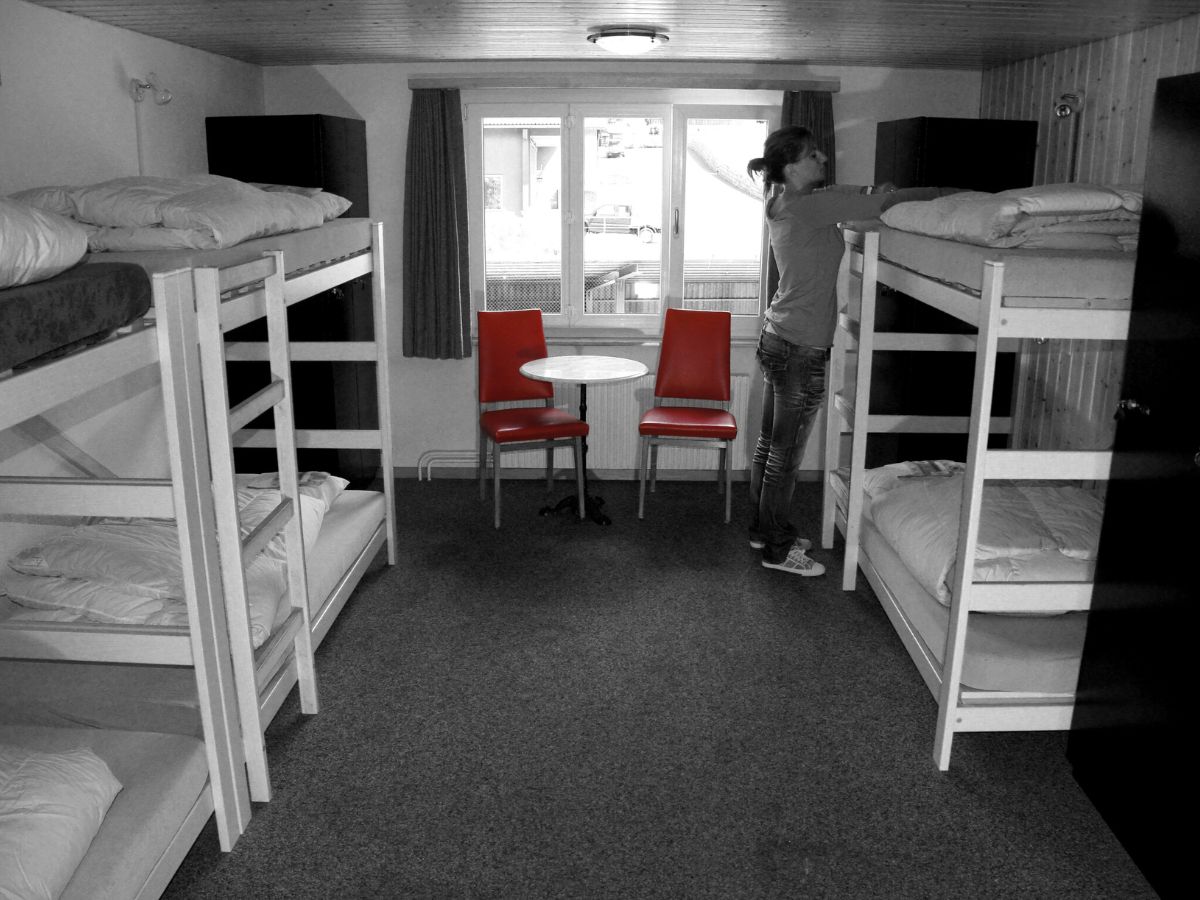Over the past decade, work exchanges have become increasingly popular with travellers. They offer backpackers in all four corners of the world the chance to save money on accommodation, food and drink which in turn lengthens trips and leads to more experiences abroad, particularly in expensive countries. Below, we will look at some of the pros and cons of work exchanges.
If you’re not familiar with the concept, doing a work exchange usually sees a person work an agreed amount of time per week in exchange for a free bed and often meals. While you can do them in your own country, the people participating in work exchanges are usually travellers in a foreign country. The kind of places that offer work exchanges may include hostels, farms, schools, bars or any other kind of business that may benefit from short-term, informal workers or volunteers.
The most popular platforms where travellers can find work exchanges include Workaway and Worldpackers. Both charge an annual membership fee for anyone looking to apply for work exchanges. You can find more information about the latter in our updated Worldpackers review which offers a bit more insight into whether work exchange platforms like Workaway and Worldpackers are worth it.
The Pros and Cons of Work Exchanges
Advantages of Doing a Work Exchange
- Learn new skills

Work exchanges are great opportunities for you to get out of your comfort zone and learn new skills. The short-term nature of them enables you to try jobs and tasks you might not have otherwise considered or those that you have always wanted to try but in a more relaxed setting than formal employment.
Not only will you learn new skills and develop existing ones, you may even get some guidance when it comes to your future career plans, potentially even pointing you in a direction that you weren’t expecting.
- Meet other travellers and locals
Work exchanges are normally social set-ups given you’ll often be with fellow travellers and your hosts throughout the day, sometimes sleeping in the same room too.
That speeds up the bonding process and you’ll get to know each other quite well, quite quickly. That’s not always easy as a solo traveller and work exchanges are certainly better places to meet and get to know locals as well as those visiting the country.
- An insight into everyday life in a new country
It’s quite easy as a backpacker to visit lots of different places and cram a lot into your travel itineraries, without ever staying more than a few days in any one place. That’s not really long enough to get a real insight into what daily life is like for local people beyond a quick glimpse before you jump on the next train, plane or bus.
Doing a work exchange will give you a unique insight into the daily or weekly grind for local people as you’ll typically stay for at least a week. Work exchanges also often offer the opportunity to stay in somebody’s home rather than typical tourist or traveller accommodation which again is a very different experience that offers a better idea of how locals actually live.
- Save on accommodation

The most obvious advantage is perhaps that of the savings you will make on accommodation. As a bare minimum, all work exchanges should include a free bed in a shared dorm as well as the obvious bathroom/shower facilities. Some will offer a free private room as part of the work exchange.
This is particularly beneficial in more expensive countries where accommodation costs are high. In countries like the USA, Canada and Australia or in much of Northern and Western Europe, you can easily spend well in excess of $30 per night, even on shared, budget accommodation. Therefore those nightly savings really can add up and should enable you to travel for longer than if you didn’t seek work exchanges to support your travels.
- Free trips & other perks
It will depend on the nature of your placement, but there are often other benefits to work exchanges beyond a bed and a bit of food. Some roles may enable you to lead or take part in trips and excursions. Others may also involve a bit of travelling around that will let you see and learn more about the place without spending any additional money.
Some hosts may also organise events or trips for their work exchange guests to do in their free time, although that’s by no means the norm.
What are the bad things about work exchanges?
- You don’t get paid
The obvious disadvantage to doing a work exchange is that you don’t get paid (there are rare exceptions on some platforms). While there are some work exchanges which are for NGOs or other good causes, most are just businesses who are attracted by the idea of what for them is effectively free labour.
While you can travel and explore in your free time, work exchanges should not be viewed as holidays (you will have to work!) and understandably work without pay doesn’t sit right with a lot of people.
- Not all exchanges are fair
In basic terms, work exchanges are very transactional arrangements where both parties get something they want. That doesn’t mean there can’t be a whole load of other benefits but you need to do your research and make sure it is going to be a fair exchange. Consider how much you will save on accommodation and meals by doing the work exchange and how many hours you will be expected to work (this should always be agreed in advance).
Factoring in those things, as well as the kind of accommodation you will be offered, should give you an idea of whether or not you are getting a fair and worthwhile exchange. For example, working 30+ hours per week in a country where food is cheap and where you can find a hostel bed for $5/night, doesn’t make much sense unless you are really attracted to the placement for another reason.
- Some of the freedom of travel is lost

Travelling and working your way around the world is a dream for many. However the reality of employment, even in the form of a short-term placement, is that some of that freedom is lost.
Work exchanges always require some form of commitment, usually only a matter of weeks, but that is still a big shift from the norms of independent travel where you can just pick up your things and go somewhere new when the urge comes. That can take some adjustment given there are days in most work exchanges where you’re not quite feeling it and might be ready for something or somewhere new.
- Vague divides between “on” and “off” time
As anyone who has done a job that involves you living at your place of work will know, there is often a bit of a grey area between working and non-working hours. Even during your “off time”, it’s quite easy to get drawn into helping with something that needs doing and depending on your host, the lines between work and free time can become quite blurred.
That’s one of the most common complaints that people who have had negative work exchange experiences tend to have.
- Personality/culture clashes
The dreamy version of work exchanges is that you and your hosts get along, learn about each other’s customs and cultures and overall have a positive, mutually beneficial experience. However, sadly life doesn’t always work like that.
In any place of work, there can be personality clashes and that’s even more likely when you might have different cultural norms and expectations when it comes to the workplace and how to behave. Throw in the fact that you’ll be living as well as working with some of your co-workers and there is the potential for tensions to boil over.
Hopefully this has enlightened you to some of the pros and cons of work exchanges. However it’s important to remember that every single work exchange will be different and you shouldn’t let one bad experience put you off.
By using platforms such as Worldpackers, you can normally get an idea of what to expect via their review system and by reading the description of the placement thoroughly. You might also want to reach out to other travellers who have previously done the placement in question before committing to anything.
This look at the advantages and disadvantages of work exchanges was published in December 2022.

